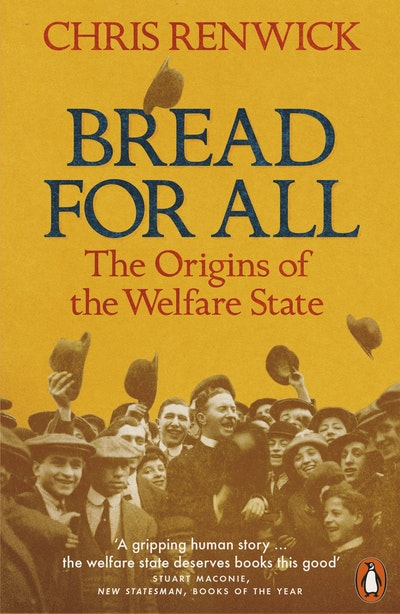Bread for All
The Origins of the Welfare State
- Published: 1 June 2017
- ISBN: 9780241186695
- Imprint: Penguin eBooks
- Format: EBook
- Pages: 384
Chris Renwick's fresh and inspiring study shows the long term history of the British welfare state and its liberal underpinnings. He reminds us all of its remarkable significance as a means of making a good society.
Mike Savage, author of Social Class in the 21st Century
In lively and incisive fashion Chris Renwick tells the story of the remarkable men and women whose ideas and decisions led, by accident as much as by design, to the creation of a distinctively British welfare state.
Paul Addison, author of The Road to 1945
Formidably learned... Carefully argued, deftly balanced and wittily written, with an infectious sense of intellectual enthusiasm... although we often associate the welfare state with the 1940s, Renwick shows that the key period was the turn of the 20th century... Bread for All ends with the Attlee government's implementation of William Beveridge's blueprint for a postwar welfare state. In Renwick's account, this is best seen as the final act in a long drama, rather than a revolutionary moment... the product of endless compromises with private and local interests, built on the legacy of the past and designed to improve capitalism rather than to replace it.
Dominic Sandbrook, Sunday Times
A brilliant book, full of little revelations-my personal favourite is that Britain's leading eugenicist also invented the dog whistle. Bread for All anchors the creation of the welfare state deep within 19th-century science... It is written with real agility in an accessible style, and is bound to figure in "books of the year" lists-it will in mine.
Jon Cruddas, Prospect



